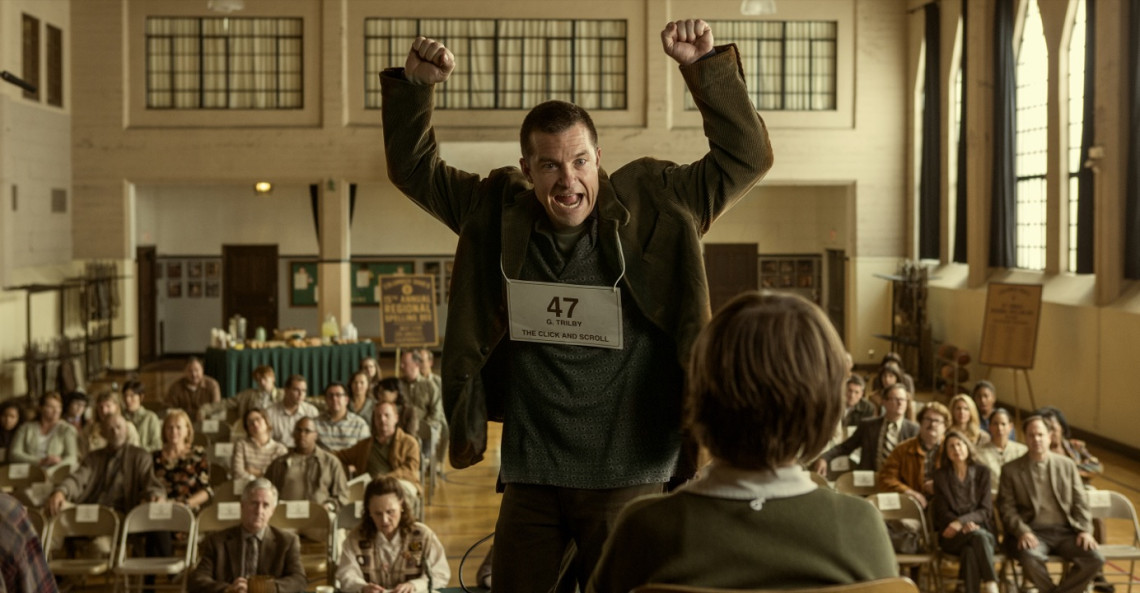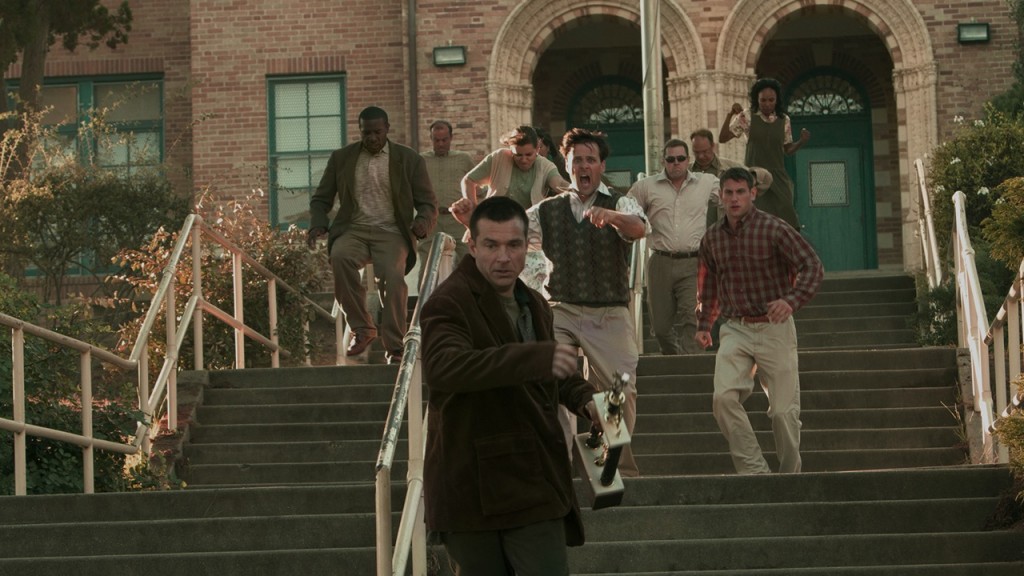In his directorial debut, funny man Jason Bateman is seduced by the irresistible charm of words: his character is a forty-year old louse taking advantage of a loophole by competing in kids’ spelling bees. After watching Bad Words, one fact becomes crystal clear: if ever there was a “swearing bee”, rewarding the most creative, sophisticated, most entertaining swearers, Bateman could easily aspire to the podium. He’s a master in tastefully mixing the pungent content and sublime form – with a delightful dash of irony and sarcasm sprinkled on top.
Short and long, adjectives and nouns, anagrams, oxymorons, polysyllabic loan-words and many more. No word can scare Guy Trilby (Bateman). He lives alone, works as a label proof-reader and apparently hates other people. At first glance, this 41-year old is a mannerless, cynical douche, who decides to compete against kids because he’s in it for the easy (wait, have you ever seen a spelling bee? Not easy at all!) money. Such a, blatantly put, one dimensional story could possibly become a subject of sociological study… but would never make an intriguing script. As the viewer may suspect from the very beginning, there’s of course another objective to his quest that remains a mystery almost until the very end.
There are, of course, chinks in Guy’s cynical armor. Chaitainya Chopra (Rohan Chand), an eleven year-old fellow contestant Guy meets on a plane taking them both to the bee’s final, is a sympathetic, eloquent teenager who deeply wants to win, but wants Guy to become his friend even more. Guy’s resistant; he won’t disclose anything personal even to the reporter (Kathryn Hahn) who covers his journey (and his expenses). But their linguistic jousts open passages to Guy’s meticulously camouflaged humanity, gradually filling the sketchy frame with slightly emotional, genuine traits.
The main source of the film’s comedic power is Trilby’s lack of appropriate filter and self-censorship – an expression of his utterly antisocial nature. Under no circumstances does he adjust what he says, no matter who he talks to. He’s addressing kids as they were adults and the other way around, if that’s what he thinks they deserve. The same goes for his attitude towards, well, people in general. At first it seems repugnant, but not only does the audience get used to it with time, but appreciate it, weirdly. Guy is 150% honest in his raging assholery. He takes no bullshit and, while never politically correct, is always fair. This is a character who refuses to start doing what adults do – pretending to be someone who he’s not – simply because he grew out of his pre-school outfit.
Debutant Andrew Dodge does a very good job – his script has a very thoughtful construction and maintains an engaging, brisk pace propelled by ingenious profanities, with the dialogue ably bending social norms and stereotypes. The frame he’s constructed is witty and ironic, skilfully held and filled by Bateman, both as a director and actor. Luckily, Bad Words is a complete opposite of the fecal style of humor linked to Adam Sandler and his fellow (f)art-conaisseurs. Unlike many “naughty” comedies, it is a true source of entertainment not only for its makers, but also for the audience – contrary to the occurrence of autofellatio, a word which Guy explains to Chaitanya when hey first meet. Like bad words themselves, Bateman’s film is gleefully irreverent, crude, punchy, and fun.





















